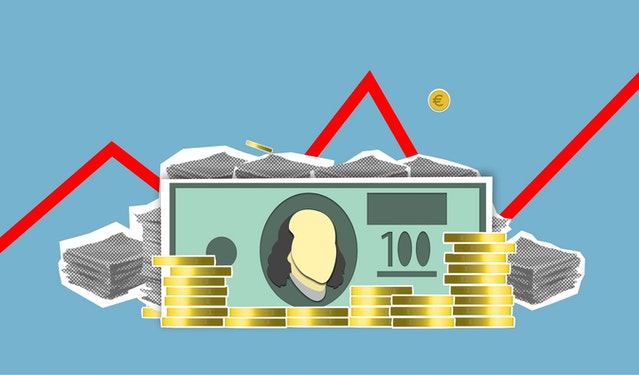

In general, stock price movement is a consequence of a lot of different events, but it can be easily predicted. For this purpose, a trader should understand several key factors affecting share prices in the stock market. In the article, readers will see four nuances, which are required to conduct correct technical analysis.
These include internal (company-related) factors, as well as events of a planetary scale. For instance,
on March 12, 2020, the day after countries started to ban traveling from Europe due to the Covid-19 pandemic, airline stocks sank significantly: United Airlines — by almost 16%, Delta Air Lines — by almost 15%, Southwest Airlines — by 14.3%.
Factor #1: Supply and demand
The first and most important factor is demand and supply in the stock market. Two basic principles:
- If demand > supply, then the stock price is likely to rise.
- If demand < supply, then the price of the stock is likely to fall.
To understand how stock price changes, it`s worth remembering that the ask price and the offer price may differ. Their difference is called the spread, and it’s an excellent indicator of the asset’s liquidity. For example, imagine that the last trade in stock was $100 for 100 shares.
The next bids for the same share are 100 shares at $99.90, then 100 shares at $99.80. In this case, buy orders include orders for 50 shares at $100.10, then 50 shares at $100.20. Thus, the spread between bid and offer is $0.20, indicating a lack of liquidity as neither buyers nor sellers can reach a compromise.
Factor #2: Outstanding shares

Also, the factors affecting the stock market include the total number of emitted shares. This is the total number of shares issued by the firm, and the float-free number of values shows how many shares are actually available for trading. The public shares are free to trade on the open market at any time. However, when considering why stocks go up and down, note that the actual number of shares available is a real mystery, as the number of buyers and sellers at any given time can be limited.
However, traders can approximate its range. If there are not many free floats, supply is low and less demand is required to push the price up. Conversely, if a company has a lot of publicly traded shares, the offer is large.
Factor #3: Financial parameters of a company
If you want to understand how to know share price will increase, then you should regularly analyze the financial performance of a company, which reflects the results of their operations. Only this data can show the real value of a company’s assets and warn the trader about a possible stock fall.
Typically, as you explore how to know share price will increase or decrease, it`s worth examining the following parameters:
- P/E known as price/earnings coefficient;
- P/S known as price/sales coefficient;
- free cash flow;
- enterprise value.
In addition, if you are interested in why the company`s share price increases or decreases, be sure to read the key related news. Perhaps the firm has published a quarterly financial report or announced the opening of another branch, etc.

Factor #4: Industry features
The stock market comprises several sectors, such as healthcare, information technology, etc. In turn, the sectors are divided into industries — in each industry, there are situations that explain how the share price increases or decreases. Here are some examples:
- the share price of a pharmaceutical company may rise after the supply of antibacterial drugs is simplified (better revenue from pharmacies ➡️ larger purchases from distributors ➡️ higher profits for the manufacturing company);
- the share price of a beauty company may fall after picketing by eco-activists against animal testing (public condemnation of products that have been tested on animals ➡️ less demand for such products ➡️ lower company profits);
- the share price of an IT company may fall after the emergence of competing companies (the IT field is getting increasingly wider ➡️ more companies offer services at affordable prices ➡️ competition is growing, the profit of a particular company is decreasing).
Conclusions
If you want to understand how stock market prices change, constantly monitor the key factors that can affect value fluctuations. The key nuance that explains price changes is always an assessment of supply and demand. However, one cannot do without side related factors: it’s a good idea to analyze the turnover of shares, the financial parameters of the company (price/earnings ratio, price/sales ratio, free cash flow, enterprise value) and its financial statements. Additionally, be aware of the peculiarities of the industry, where new laws or social events can also change the price.








